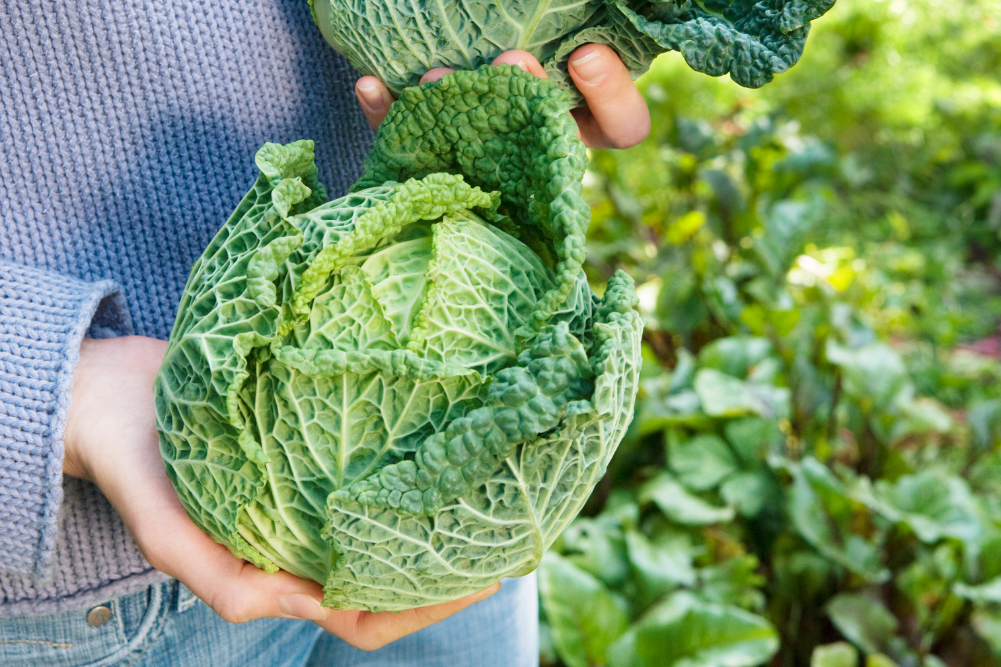Flex Your NO Muscle
Are you a yes person? “Yes, I’m happy to stay behind and wrap up that extra work project.” “Yes, your family can crash at ours for three weeks.” “Yes, of course, I’d love to help.” Then when the dust settles and your plate is filled to overflowing, you cringe, give yourself a mental slap and think, “Why can’t I just say no?!”
Saying no is hard. By uttering that one word, we may disappoint, displease or let others down. We think saying no can make us look incompetent, uncaring or even selfish. So, we find ourselves agreeing to requests that we would rather not.
Choosing to say no empowers us to take control of our lives and establish healthy boundaries. It signifies that we prioritise our time and value ourselves. Saying no is a right and, at times, it’s a necessity for our emotional health and physical wellbeing. One of the reasons we can struggle to say no is that it’s part of the human condition to try to please others. As social creatures, we want to be liked, and we want to avoid confrontation.
Next time you feel the word “yes” automatically rolling off your tongue, take a deep breath and think for a moment. By saying yes to a request that you don’t really want to commit to, what could you be passing up? A night on the couch with a glass of wine and a good book? An after-work catch up with people you love?
Ditch the guilt
Many of us grew up to believe saying no is impolite. Clinical Psychologist Dr Vikki Knott says agreeing to requests when we really want to say no often stems from what we’ve learned in early childhood. “We are taught it’s good manners to share, to be compassionate and kind to others,” she says. “But it’s important to practise self-compassion, we can’t say yes every time to everyone, it’s not physically or emotionally viable.”
Saying no might trigger feelings of guilt due to childhood condition, but it shouldn’t. Your time holds immeasurable value — it’s your most precious resource. With finite hours, days, weeks and years, how you choose to spend your time shapes your life. Your time is not only a gift to others but also to yourself.
By declining requests, you gain better control of your time and make space for what is important to you. Saying no is an act of self-care, offering moments to pause and reflect. Sometimes, saying no to a request can be the kindest thing you can do for others as well as for yourself.
What will happen if I say no?
While it’s natural to worry about disappointing others, it’s important to consider if the stakes are truly as high as they seem. Your kids might sulk momentarily, your boss might be annoyed or you might fear missing out on a work promotion. Dr. Elizabeth Shaw, CEO of Relationships Australia NSW, suggests fact-checking these assumptions with a friend to see if you could be blowing it out of proportion. “Try to talk yourself off the ‘yes’ ledge, so you can unpack what is being asked of you,” she says. Remember, saying no isn’t a rejection of the person, but simply of their request.
A “yes” culture
We live in a society that equates busyness with success, that tells us by saying “yes”, we will somehow win the race. But it can reach a tipping point. Dr Knott says if “yes” is your go-to response and you are starting to feel overwhelmed, it’s time to nip your “yes” habit in the bud. “If you become overloaded, you can experience burnout as your body is in a constant state of fight or flight,” she explains. “This can lead to other emotional issues such as depression and anxiety.”
Dig a little deeper into the mantra of perpetual busyness and you’ll discover that the more “yes” responses you pile up, the harder it is to say no. Dr Shaw says when you are feeling tired and overwhelmed, saying yes can become an automatic response. “You lose traction on what to actually say no to, making the situation worse by saying yes to everything,” she says.
Those who struggle to say no often go above and beyond what was originally asked of them, too. The impulse to people please can lead you down a slippery slope of taking on far more than you can carry. If you are asked to do something and you’re unclear about the parameters of a task, ask for clarity. It’s okay to ask questions and set reasonable boundaries.
Press pause on requests
When you feel the impulse to say yes, you don’t need to give an answer right away. Tell someone that you’ll let them know. Think about whether what is being asked of you aligns with your values and whether you have the time to do this job and do it well.
Dr Shaw says if you find yourself saying yes too easily, when the situation allows, it can be helpful to develop a habit where you wait a beat before saying yes. She suggests something along the lines of: “Can I ring you back in an hour, you’ve caught me in the middle of something.” “In the meantime, think to yourself is this a reasonable request?” she says. It’s also a good idea not to slam the door shut if it’s an opportunity that appeals to you, but you just don’t have the time or inclination now. Consider saying: “I can’t right now, but next time, give me a shout, I might be free.”
Just say no
It’s tempting to believe that always saying yes is the key to winning people’s favour. Being the goto friend, the reliable daughter or the well-liked colleague is, no doubt, appealing. But when we say yes, it often means we are making others feel happy ahead of ourselves, we’re accumulating social and professional kudos, we’re making our kids smile. Dr Shaw says for our own self-worth, we need to be prepared to say no, even when it doesn’t sit comfortably with you to do so. “Otherwise, our sense of ourselves ends up being constructed around others’ approval of us,” she explains.
Did you know “no” is a sentence? Two letters, oneword, full stop. If saying no feels challenging, treat it like any other skill you’d hone, whether it’s perfecting your golf swing or mastering a new recipe. Practise asserting your boundaries daily, just as you would tackle weeds in your garden or resist that second slice of chocolate cake tempting you from the fridge.
If you begrudgingly say yes, the other person will sense it, ultimately benefiting no one. You won’t bring your A game to the project and you won’t be honouring your authentic self. Avoid becoming a martyr by investing your time and energy only in endeavours aligned with your core values.
Be firm
There will be moments when saying no feels particularly challenging. Perhaps your three-year-old eagerly wants to play in the park on a chilly morning while you’re feeling unwell. Or maybe a close friend invites you to celebrate a job promotion with a night out when you have an early work meeting.
According to Dr Knott, navigating these situations can indeed be tough. “Sometimes, it’s important to prioritise others’ needs and practise kindness, but we must also consider if it aligns with our own wellbeing,” she says.
It’s important to be crystal clear in your delivery. “I’m not sure”, “Maybe it could be a possibility”, “I don’t know”. Have you really said no? An ambiguous response gives the other person wriggle room to turn your maybe into a yes. “Get onto solid ground with your no and be confident, otherwise the person may try to talk you into a yes,” says Dr Knott.
If you find it hard to say no, it can be beneficial to anticipate situations where you might be asked for something. For instance, if you know your boss is about to assign you an extra project and your workload is already overwhelming, you can offer to take it on while asking which task it should replace on your list.
If saying no still feels challenging, channel your inner three-year-old who could decline with finesse. Remember the straightforward “No, I’m not eating those peas”, or “No, I want to play on the swing.” While you may need to polish your delivery, the principle remains the same.
In such cases, it’s crucial to stand your ground and repeat your decision. According to Dr Knott, if the person becomes defensive, try not to react defensively yourself. “Allow them space and time and be firm, stick to your decision,” she says. “If the person can’t accept a no, it’s their issue, not yours.
Taking care of yourself
Being a perpetual yes person is hard work, it can be draining and exhausting. Taking control and restoring balance to your life can start with a simple review of your schedule. If your calendar is filled with obligations to others but lacks time for selfcare, it’s essential to carve out that space. “Make sure there is time for you,” says Dr Knott. Taking time out to pause and reflect is important for selfcare. We need time to nurture ourselves, to nourish our mind, body and spirt.
It’s important to give yourself permission to say no, even if it requires setting boundaries — an essential aspect of any healthy relationship demonstrates self-respect.
When you feel centred, it’s easier to see things clearly. You’ll know if you have the time and energy to consider a request. You’ll also know if something that is being asked of you is unreasonable or unfair.
Dr Knott emphasises the importance of challenging societal norms that equate self-care with selfishness. “It’s about changing the narrative in society around the concept of self-care,” she says. “If we look after ourselves, then we will be better friends, workers and family members.”
If you find you are saying yes to requests on autopilot, Dr Knott suggests making a mindfulness self-check-in part of your daily routine. It’s something we should all be doing anyway, but often we find we are too busy. “Ask yourself: how is my body feeling? Do I have any aches and pains? Is my mind racing?” she says. “It only takes a few minutes every day, then you’ll know … I’m tired, sore and doing too much. So, it’s a no.”
Embrace saying yes to activities that bring you joy, self-empowerment and, most importantly, say yes to yourself.








